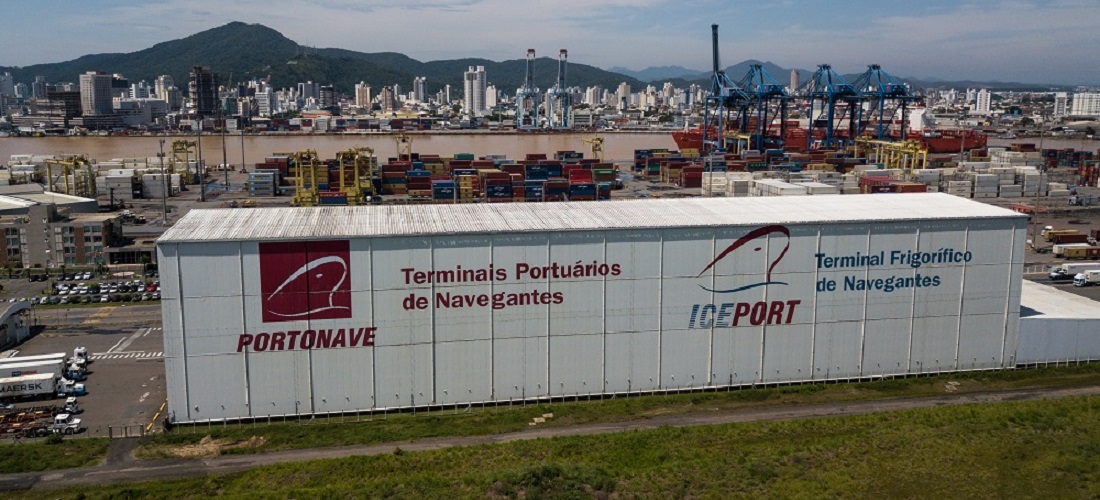
Portonave obtains halal certification
Feb, 16, 2020 Posted by Sylvia SchandertWeek 202008
Iceport, the cold storage facility at Portonave in the Port of Navegantes, obtained Halal certification following an audit carried out during December and January. This certifies that Iceport provides its services in accordance with Islamic law, and its products can therefore be used or consumed by Muslims. Thus, Iceport is now able to handle and transport cargo destined to countries which enforce this requirement as well as countries which do not enforce the certification requirement but where Muslim groups reside, such as some places in Mercosur and in Europe.
The qualification includes beef and poultry exports. “Halal products currently represent around 80% of the total volume stored in Iceport today. It is a market that demands higher working standards. Unqualified competitors lose this niche, which increases business opportunities for Portonave. This keeps us competitive ”, said Bruno Vargas, Operations and Depot supervisor at Iceport.
Halal production must abide by Islamic religious precepts at all stages of manufacture, industrialization, handling, storage and transportation. They must not contain any input or raw material that is a Haram element (prohibited by Islamic law) nor be contaminated by them during production, storage and transportation.
The Islamic market
The Arab world is one of the main destinations of Brazilian meat exports. But the Halal market is not limited to an Arab context, since most of the world’s Islamic population does not live in Arab countries. The largest Islamic country is Indonesia, with about 250 million inhabitants, 90% of them Muslim. After Indonesia, the biggest Islamic countries are Bangladesh, Pakistan, Turkey, Iran and Egypt. The total Islamic population is approximately 1.6 billion, about 20% of the world’s inhabitants.
Some of the Haram elements, prohibited under Islamic law, are:
– pig meat, fat, leather, bones and any derivative of pigs;
– meat, fat, leather, bones and any derivative of other animals that are allowed, but have been slaughtered outside the religious precepts of Islam (one of the rules required for slaughter, is mentioning the name of Allah during the slaughter) ;
– alcoholic beverages and ethyl alcohol;
– blood from any animal, even if slaughtered in the Halal form.
-
Grains
Jan, 01, 2021
0
Argentina suspends corn exports until March to focus on domestic supply
-
Apr, 25, 2022
0
Antaq will listen to ports to find solutions to the container crisis
-
Sugar and Ethanol
Nov, 21, 2018
0
Adecoagro invests R$21.2m in Brazilian mills
-
Shipping
Sep, 27, 2021
0
Mercosul Line’s New Nexco service will make stops in Manaus

